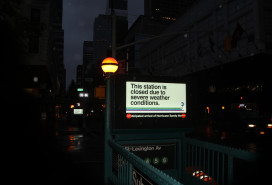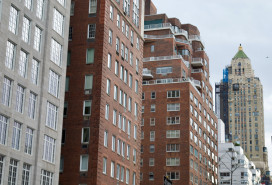
Tina Larsson
Tina Larsson is the co-founder of The Folson Group, New York City's leading co-op and condo consultancy. A prominent speaker on proactive co-op/condo leadership and ESG matters, Tina is the author of Living the High Life: How Smart Co-op and Condo Owners Protect Themselves and Their Investment. In addition to two decades experience as a business analyst and investment advisor, Tina holds a BS and MBA from Pace University and a LEED Green Associate designation. Her mission is to make NYC safer, more sustainable, and more affordable.
Posts by Tina Larsson:
While the cost to maintain each building varies, the costs that every building incurs include heating, electric, water, insurance, and real estate taxes. Building size also impacts costs in various ways.
In both co-op and condos, owners make monthly payments for shared expenses like heating, water and electricity, staff, and elevators. How much the shared costs are is highly dependent on your building’s size and number of floors. It also depends on what types of services or amenities your building has.
In a co-op, the monthly payment is known as maintenance, or maintenance fees; in a condo, the owner pays what is called common charges (often abbreviated CC).
A co-op or condo board’s primary responsibility is to look after the operations and financial well-being of the building and make decisions on behalf of the building’s owners, with a crucial component being to protect, maintain, and enhance property values.
In New York City, there are some recycling programs that are mandatory and some that are voluntary. Recycling has evolved over the years and like anything else, it changes and improves. During the pandemic, the organic recycling program was halted due to Department of Sanitation constraints. As of this writing, some neighborhoods have been able to get their organic recycling back, but not all.
Although energy consumption is the biggest challenge for co-op and condo buildings when it comes to meeting carbon neutrality, water usage plays a role too, especially when that water is heated.
Replacing wasteful plumbing fixtures with more efficient ones nets the following benefits:
Local Law 97 (LL97) is part of New York City's Climate Mobilization Act of 2019. The end goal is for the city is to be carbon neutral by 2050. The result is a phased program where buildings will be fined for exceeding the carbon emission limit beginning in 2025, with even more stringent emission limits (and thus potentially higher fines for noncompliance) going into effect in 2030.

























